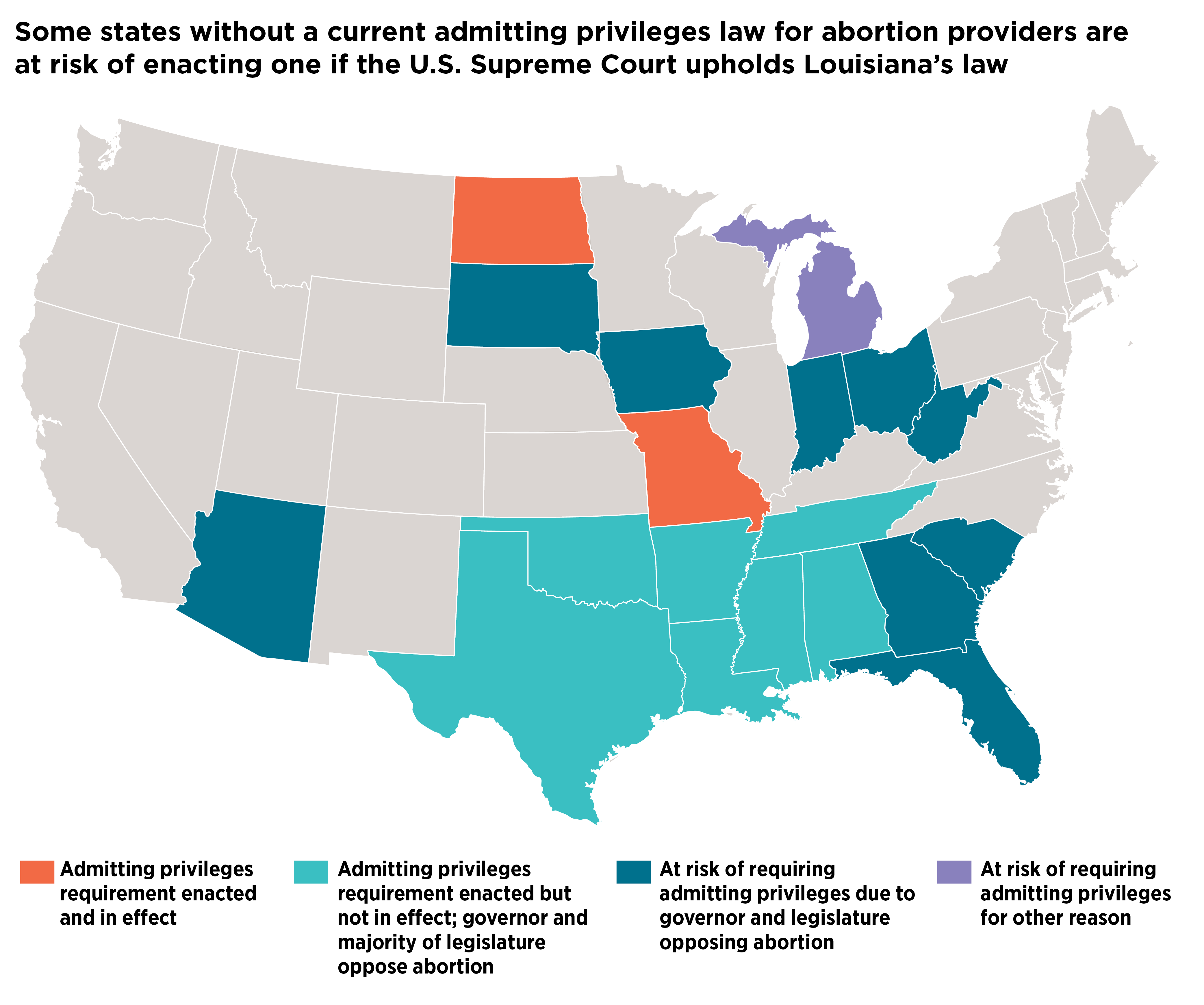Updated on June 29, 2020:
On June 29, 2020, the U.S. Supreme Court struck down Louisiana’s harmful admitting privileges requirement in June Medical Services v. Russo. The Court’s 5-4 decision prevented the restriction from going into effect, allowing the state’s three remaining clinics to stay open. The Court also rejected Louisiana’s argument that abortion providers do not have standing to challenge abortion restrictions on behalf of their clients.
First published May 11, 2020:
The U.S. Supreme Court heard oral arguments in June Medical Services v. Russo in March 2020 and its forthcoming decision in that case could have profound implications for abortion rights and access in Louisiana and other states.
The lawsuit is a challenge to a Louisiana law that requires abortion providers to have admitting privileges at a local hospital. In 2016, the Court struck down an identical restriction imposed by Texas, ruling that admitting privileges requirements are unconstitutional because they shut down abortion clinics without providing any health or safety benefits to patients. If the increasingly conservative Supreme Court uses the current case to walk back its own precedent, abortion services in Louisiana could be drastically reduced for almost one million women of reproductive age across the state.
States Poised to Take Action
A decision allowing Louisiana’s law to go into effect would embolden antiabortion lawmakers in other states to impose additional, draconian restrictions on abortion care. History demonstrates that opponents of abortion, perceiving an invitation from the Supreme Court, would not limit themselves to just one type of restrictive policy. However, in the wake of the Louisiana case, one obvious option for states without active admitting privileges requirements would be to move swiftly to impose this type of restriction on providers, further tightening the web of antiabortion policies that limit access to care.
The most direct way for a state to add this type of restriction to its active policies would be to adopt new requirements through legislation or regulation. Beyond Louisiana and Texas, there are 15 states in a position to try this because, aside from Michigan, they each have an antiabortion governor and majority of state legislators. Michigan is included in this category even though the current governor supports abortion rights, because the state has a citizen-initiated process by which a law can be enacted without the governor’s approval, and this process has been employed in the past to adopt other abortion restrictions. Almost all of these 15 states are in the South, Midwest and Plains.
This group of states includes five that already have admitting privileges requirements on the books—laws that are not currently in effect due to litigation, but which could potentially be used to achieve the same end, if states are able to revive the requirements through court action instead of by legislative or administrative processes. Among these five states, only Tennessee’s law was ever in effect. Two additional states—Kansas and Wisconsin—have passed admitting privileges laws that have also been blocked by courts, but because of subsequent political changes, these states are less likely than the other 15 to seek to have their restrictions enforced. Both states now have elected leadership that supports abortion rights.


